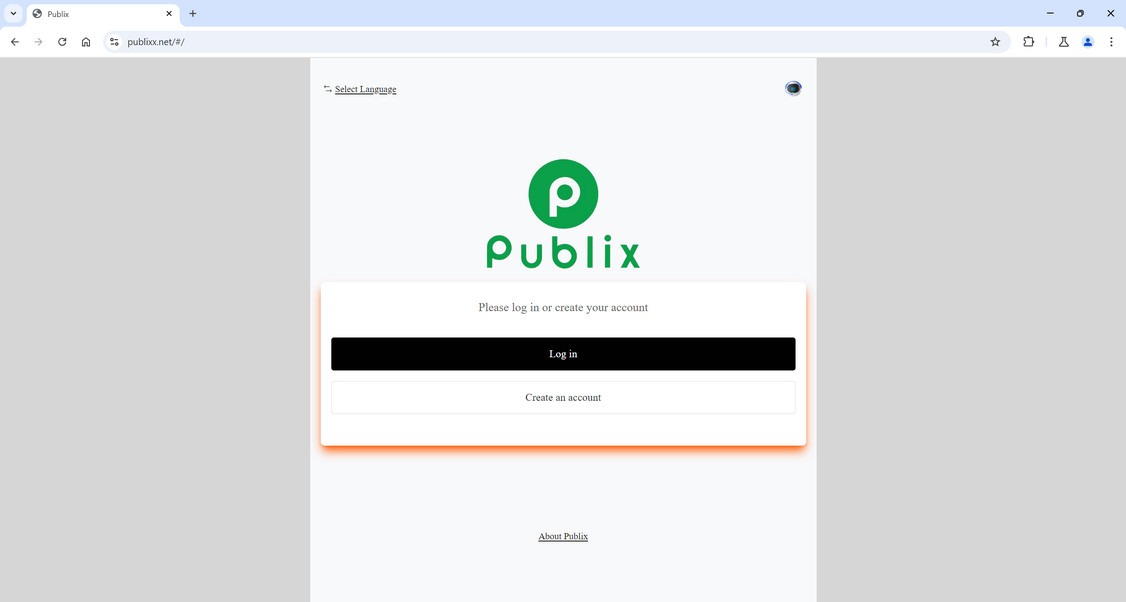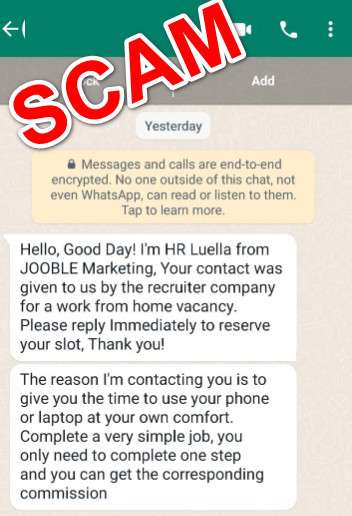Publixx.net promises easy money for simple micro-tasks like placing orders, liking posts, or watching videos. However, beneath this glossy facade lies a scam designed to financially exploit unsuspecting victims.
This article will expose how scammers behind Publixx.net employ psychological manipulation and deceit to siphon money from users lured by dreams of effortless income. It reveals the scam’s operational mechanics, shedding light on the sly tricks used to incrementally extort victims.
Most importantly, you’ll learn how to spot the red flags of this scam before getting ensnared. Read on to uncover the predatory nature of Publixx.net and similar platforms in order to avoid becoming yet another cog in their well-oiled scamming machinery.

Overview of the Publixx.net Scam
Publixx.net is a dangerous scam operating under the guise of a legitimate passive income opportunity. This fraudulent website claims to offer easy commissions in exchange for completing simple online tasks like placing orders, liking posts, watching videos, etc. for partner merchants. However, beneath the surface lies an elaborate and sinister scam designed to deceive unsuspecting victims and siphon their hard-earned money.
The Publixx.net scam exemplifies the rampant rise of task scams aimed at exploiting vulnerable individuals looking to supplement their income online. Task scams like Publixx.net promise easy money for minimal effort through activities like product testing, survey completion, review writing, etc. However, what starts out as few simple tasks eventually escalates into an endless cycle of payment requests that bleed victims dry.
Here is an in-depth look at how the Publixx.net scam operates and exploits its victims:
- The scam begins with unsolicited messages sent over social media platforms like Facebook, LinkedIn, Instagram, etc. Scammers masquerade as HR professionals or business owners and offer flexible work opportunities that require little effort but pay attractive commissions.
- These messages spark interest in potential victims who are then directed to the glossy Publixx.net website. The site showcasesStock photos of smiling “employees” and fake testimonials convincing victims they have found a risk-free way to earn extra cash.
- Victims are asked to input their personal information and complete a few initial tasks like rating products, registering accounts, watching videos, etc. These menial tasks take little time while building trust as victims receive small payments of $5-10 upon completion.
- After successfully withdrawing the initial commissions, victims are offered special high-value tasks called “lucky orders” that promise massive payouts. However, victims are told they must first pay a fee to unlock these bonus tasks.
- Scammers manipulate and coerce victims into paying the fee, often starting at $250. They tout limited availability and pressure victims with time-sensitive deadlines, claiming the opportunity will be awarded to others if payment is not received immediately.
- As soon as the first fee is paid, scammers invent new reasons for further payments, slowly increasing the amounts being requested. Victims land in a vicious cycle of payment requests, each time believing it will lead to the windfall payout.
- Scammers exploit psychological tendencies like sunk cost bias and false scarcity to keep victims trapped in the endless payment loop. Victims are made to feel they have invested too much to quit now and that the big payday is just around the corner.
- The fraudulent fees keep climbing into thousands of dollars over weeks or even months. Victims drain bank accounts, sell assets, and take out loans to pay the escalating fees in hopes of recouping their losses.
- Eventually when victims cannot pay anymore, the scammers become unresponsive. Any access to accounts or earnings is restricted, and websites like Publixx.net vanish suddenly without a trace.
- By this point, life savings have been drained from victims who are left with crippling debt, psychological anguish, and no way to pursue the overseas scammers. The victims are simply left to pick up the pieces of their lives.
Publixx.net is just one among countless sites involved in orchestrating such task scams. These scams are on the rise globally causing financial and emotional devastation to countless victims. The most vulnerable targets are desperate freelancers or unemployed individuals looking for additional income online.
By understanding the deceptive tricks and trauma caused by these scams, people can spot red flags early and avoid falling into these insidious traps promoted by sites like Publixx.net.
How the Publixx.net Scam Works
The Publixx.net scam is executed through well-planned stages aimed at slowly drawing victims deeper into the trap. Here’s a step-by-step look at how the scam unfolds:
Stage 1: Initial Contact
Scammers behind Publixx.net use social media platforms like WhatsApp, Facebook, LinkedIn, Instagram, etc. to find potential targets. Masquerading as HR managers, recruiters, or business owners, they send unsolicited messages to victims promoting flexible work opportunities or side incomes. Their messages are worded to spark interest and curiosity, luring respondents to ask for more details.
Stage 2: Introduction to the Site
Once contact is initiated, scammers direct victims to the Publixx.net site, describing it as an online platform for easy part-time work that pays daily commissions. Victims are told they simply need to complete minor tasks like placing orders, liking posts, watching videos, etc. for partner merchants to earn money. The repetitive tasks are portrayed as quick and straightforward, perfect for anyone looking to earn extra cash effortlessly.
Stage 3: Completing Initial Tasks
To demonstrate how easy it is to earn commissions, scammers have victims complete a few initial tasks on the site. With minimal effort, victims receive small payments of around $5-10 into their registered accounts. These small wins build trust in the site’s legitimacy and give victims confidence to continue.
Stage 4: Landing the “Lucky Order”
After successfully completing several tasks and withdrawals, victims are suddenly given a highly lucrative bonus order worth hundreds of dollars. However, to complete it, they must first pay a processing fee.
Scammers hype up these “lucky orders” as rare opportunities for windfall payouts. Victims are made to believe paying the fee will lead to exponential returns on their investment. In reality, these orders are completely fabricated to trap victims.
Stage 5: Payments Down the Rabit Hole
Once victims pay the initial fee, scammers invent new reasons to ask for more money, claiming issues like taxes, shipping costs, or insufficient account balances. Victims land in a vicious loop of payment requests as scammers exploit the sunk cost fallacy to coerce them to pay or risk losing everything already invested.
Stage 6: The Disappearance Act
The payment requests continue until victims either run out of money or realize something is amiss. At some point, victims try to withdraw their earnings only to find payouts frozen and accounts blocked. Any attempts to reach customer support go unanswered, while scammers behind the site vanish into thin air.
By this point, scammers have siphoned tens of thousands of dollars per victim which are quickly laundered through cryptocurrency exchanges. The Publixx.net site gets taken down, and the scammers set up shop under a new name to repeat the process.
What to Do If You Are a Victim
Discovering that you have fallen prey to the Publixx.net task scam can be devastating, both financially and psychologically. While the damage done may seem irreparable, there are important steps you must take right away to stop further losses and work towards recovery:
1. Cease All Contact Immediately
The moment you suspect you are caught in this scam, immediately cease all contact with the fraudsters behind it. Block them on all channels they are able to reach you such as phone, email, social media platforms etc. Ignore any further attempts they make to reach out to you – any further engagement only pulls you deeper into their trap.
2. Secure Your Accounts
Assume your personal information and account details have been compromised. Change passwords on email accounts, banking portals, social media profiles and any other online accounts the scammers may have gained access to. Enable two-factor authentication wherever possible for stronger security.
3. Alert Relevant Institutions
Notify your bank and credit card providers regarding any unauthorized transactions conducted by the scammers. Inform relevant authorities – file reports with the FTC, FBI, SEC, IC3 and local law enforcement detailing the scam. Provide them with all available details on the scammers and transactions to aid investigation.
4. Monitor Accounts Closely
Keep a close eye on your bank accounts and credit statements over the next few months. Look out for any suspicious activity and unauthorized charges/withdrawals. Alert your bank immediately in case fresh fraudulent transactions are detected so they can be reversed quicker.
5. Seek Legal Counsel
Consult a lawyer experienced in cases of online scams, fraud recovery and retrieving lost funds. They can review your case and advise if civil or criminal actions can be pursued against the scammers to reclaim your lost money.
6. Learn from This Experience
While being scammed leaves victims scarred, try to reflect on the experience with a learning mindset. Look out for red flags you may have missed or vulnerabilities that were exploited. Use these insights to protect yourself from potential scams in the future.
7. Warn Others
Consider sharing your experience once you have regained composure and perspective. Your story could help alert others in your network to this scam. Reporting the scammers on consumer forums also helps curb their ability to keep victimizing more people.
By following these steps, you can stem additional losses, strengthen your security, and pursue options to reclaim funds lost in the Publixx.net task scam.
How to Spot Publixx.net and Similar Scams
While Publixx.net and sites like it are getting smarter at disguising their scammy nature, there are some telltale signs to watch out for:
Unsolicited Contact
One of the biggest red flags is if you are approached out of the blue on social media or email by someone promoting these platforms. Scammers rely on actively targeting potential victims rather than organically attracting users. Be wary of anyone aggressively pitching “easy money” opportunities or side incomes to you unprompted.
Vague Details
When initially pitched, scammers tend to remain vague about what exactly you have to do and how the income opportunity works. Watch out for those unwilling to provide clear details on the tasks involved and how commissions/payments work. Legitimate businesses are transparent right from the start.
Pressuring Language
Scammers tend to employ high-pressure tactics, creating a false sense of urgency and scarcity around the opportunity. You may see language like “limited slots available” or “offer expires soon”. This is aimed at getting victims to sign up as quickly as possible without deeper scrutiny.
Too Good to Be True Returns
Claims of earning exorbitant sums for minimal work are a huge red flag. Legit platforms provide reasonable earnings proportional to the work done. Consistently high returns regardless of effort invested indicate a financial scam.
Verification Avoidance
Most scam platforms also avoid background checks or verification processes under the pretext of quick signup. But legitimate businesses need user verification for security and legal reasons. Lack of verification should raise suspicions.
Stay vigilant and don’t get swayed by promises of easy income on shady websites. Scrutinize every aspect of their operations and see if they check out. Go with your gut feeling and walk away from anything that feels “off”. Caution and critical thinking are your best defenses against such scams.
Frequently Asked Questions About The Publixx.net Scam
1. What is Publixx.net?
Publixx.net is a fraudulent website that pretends to be a platform where users can earn money online by completing simple tasks like placing orders, writing reviews, liking social media posts etc. for affiliated merchants and advertisers. However, it is an elaborate scam designed to trick victims into making payments under false pretenses.
2. How does the Publixx.net scam work?
The scam typically starts with scammers contacting potential targets via social media and advertising Publixx.net as an easy income opportunity. Victims are lured into signing up on the site and completing a few simple tasks which earn small commissions, building trust. Soon victims are offered special “bonus tasks” requiring upfront payments that promise lucrative returns. Victims get caught in endless payment loops on the pretext of various fees while scammers disappear with their money.
3. What tactics do Publixx.net scammers use?
Scammers rely heavily on deception, manipulation and exploiting cognitive biases. They build trust with fake testimonials, transaction records and earnings counters on the site. Any doubts are met with false reassurances, technical jargon and playing on the sunk cost fallacy. Their friendly tone and charm tricks victims into lowering their guards.
4. How much money have victims lost to Publixx.net?
According to reports, victims have been scammed out of thousands of dollars individually, with estimated losses ranging in the hundreds of thousands globally. Scammers continuously reinvent the scam once exposed, stealing increasingly larger sums with their ever more elaborate schemes.
5. What techniques do scammers use to cover their tracks?
Scammers use fake profiles, disposable email addresses and virtual phone numbers to avoid being traced. Funds extorted are quickly laundered through cryptocurrency exchanges before victims can react. Any traces of the website are wiped clean once the scam is uncovered, only to reappear under a new name later.
6. How can I spot Publixx.net and similar scams?
Warning signs include unsolicited contact on social media, vagueness about tasks and payment details, pressure to sign up quickly, promises of unusually high returns for minimal work and lack of user identity verification. Reach out to users to verify testimonials. Research the company name online looking for complaints.
7. What should I do if I am victimized by this scam?
Immediately cease all communication with the scammers. Report them to authorities like the FTC, FBI, SEC and local law enforcement providing all details available. Notify your bank and financial institutions regarding fraudulent transactions and close any compromised accounts. Change passwords on all accessible online accounts and enable two-factor authentication.
8. Can victims recover lost money?
It is very difficult but consulting a lawyer experienced in online scams can help determine if legal recourse is available. Law enforcement may be able to trace laundered transactions and seize assets. Banks sometimes reimburse fraudulent transfers reported promptly. Still prevention remains the best protection, so spread awareness.
9. How can I avoid such scams in the future?
Stay vigilant of unsolicited contacts promoting easy money opportunities. Critically evaluate all claims, verify advertiser/company details through independent research. Beware of pressure tactics and vague responses. Start with low investment and small tasks to test legitimacy before increasing engagement. Avoid opportunities promising high rewards for minimal work.
The Bottom Line
In conclusion, Publixx.net is a fraudulent website running an elaborate scam under the guise of easy online work. Through manipulative tactics, scammers behind the site defraud victims out of thousands of dollars. The scam capitalizes on human tendencies like greed and sunk cost bias to incrementally trap victims in a cycle of endless payment requests.
If you encounter Publixx.net or anything resembling it – walk away immediately. Anything promising easy money for simple online tasks is almost certainly a scam. Be vigilant, stay skeptical of such “opportunities” and focus your efforts on legitimate ways to supplement your income online. Hopefully, the detailed exposé provided here can help prevent unsuspecting people from being victimized by this insidious scam.



